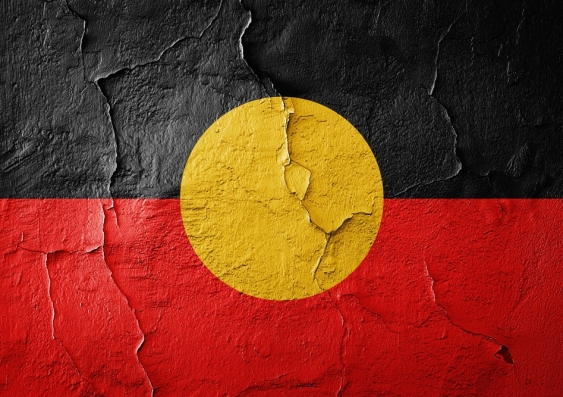OPINION: Discussions have begun between the South Australian government and three Indigenous nations aimed at finalising a treaty.
These negotiations follow recent developments toward treaties between Indigenous and non-Indigenous Australians across the country. These are significant steps. They offer the potential to revitalise – but also overtake – a flagging process to recognise the First Australians in the Constitution.
Treaties are accepted globally as the means of reaching a settlement between Indigenous peoples and those who have colonised their lands. They are formal agreements, reached via respectful negotiation in which both sides accept a series of responsibilities.
Treaties acknowledge Indigenous peoples were prior owners and occupiers of the land and, as such, retain a right to self-government. At a minimum, they recognise or establish structures of culturally appropriate governance and means of decision-making and control.
Treaties have been achieved in the US and Aotearoa/New Zealand, and are still being negotiated in Canada. In contrast, no treaty between Indigenous and non-Indigenous Australians has ever been recognised. Recent developments suggest this may change soon.
Treaty processes at the state level
The South Australian government has set aside A$4.4 million over five years for a treaty process that is seen as a “crucial step” in a process of reconciliation. Discussions will be open-ended, with no presumed outcome or form. But it is assumed the consequences of settlement will be considered.
In February, the Victorian government announced its commitment to negotiate a treaty with the 39 Indigenous nations that reside within the state. Consultative forums have been held in Melbourne and across regional Victoria. An Aboriginal Treaty Interim Working Group is currently planning “the next steps in a treaty-making process”.
Moves are also afoot in the Northern Territory. In September, incoming chief minister Michael Gunner declared his government would establish a subcommittee on Aboriginal affairs to drive public discussions on a treaty between the NT and Indigenous nations.
This is not just the province of Labor governments. In Western Australia, the Liberal government signed the largest and most-comprehensive agreement to settle Aboriginal interests in land in Australian history with the Noongar people in 2015.
The agreement involves 30,000 Noongar people and covers around 200,000 km². The total value of the package is about $1.3 billion, and includes agreement on rights, obligations and opportunities relating to land, resources, governance, finance and cultural heritage. In exchange for this package, the Noongar people have agreed to surrender all current and future claims relating to historical and contemporary dispossession.
Although this agreement was conducted under the framework of the Native Title Act rather than a specific treaty process, its size and scope have raised treaty comparisons. Deputy WA Opposition Leader Robin Cook has said:
By its very nature, the Noongar agreement is in fact a classic treaty.
It is still too early to say whether the treaty processes at the state level will be successful. It is also unclear whether state and territory governments are interested in recognising Indigenous self-governance. Simply calling an agreement a “treaty” will not make it so.
Nonetheless, these moves are encouraging. If delivered, treaties offer the potential of meaningful reform, overtaking a stalled constitutional recognition process.
Constitutional recognition has stalled
It has been six years since the Expert Panel on Constitutional Recognition of Indigenous Australians was established. Yet federal government ambivalence over a preferred model, and difficulties involved in achieving a successful referendum, mean the process has gone nowhere.
Despite several parliamentary and expert reports, no government has ever committed to a model. The panel’s final report did not even receive a formal response from the government.
In 2015, the Parliamentary Joint Committee on Constitutional Recognition of Aboriginal and Torres Strait Islander peoples achieved a similar result. Three weeks after delivering the report, the committee’s chair, Ken Wyatt, acknowledged conservatives within his party would not accept its recommendations.
In December 2015, another body, the Referendum Council, was established to advise on progress toward a referendum. It is currently consulting with Indigenous Australians to hear their views on reform and plans to deliver a report in mid-2017. It is by no means certain that the government will seriously engage with this latest report.
Government inaction has pushed out the referendum timeframe. Once tentatively scheduled for 2013, any vote is now unlikely to occur before 2018. And just what Australians will be asked to vote on remains unclear.
In essence, the problem with constitutional recognition is a disconnect between the federal government and Indigenous aspirations. While the government gently pushes for symbolic acknowledgement and minor constitutional tinkering, Indigenous people want more. They want meaningful reform that will impact their daily lives. This is why they are attracted to the promise of treaties.
Treaties and constitutional recognition
The treaty processes at state level have important consequences for the national debate on constitutional recognition.
First, if they are effective – and deliver meaningful change – they can provide the basis for further treaties with Indigenous peoples across the country.
Second, in negotiating with Indigenous peoples and reaching an agreement based on terms acceptable to both parties, these treaties will mark an important shift in attitude. They could represent a break from a system that for many years has disregarded the views of Indigenous Australians and reinforced their feelings of powerlessness.
Finally, these developments can revitalise the constitutional recognition process by delivering meaningful change to Indigenous Australians, and demonstrating such change is not radical. Politicians should recognise this, and listen to what Indigenous Australians want.
 Harry Hobbs is a PhD Candidate, Constitutional Law and Indigenous Rights, UNSW
Harry Hobbs is a PhD Candidate, Constitutional Law and Indigenous Rights, UNSW
This article was originally published on The Conversation. Read the original article.


